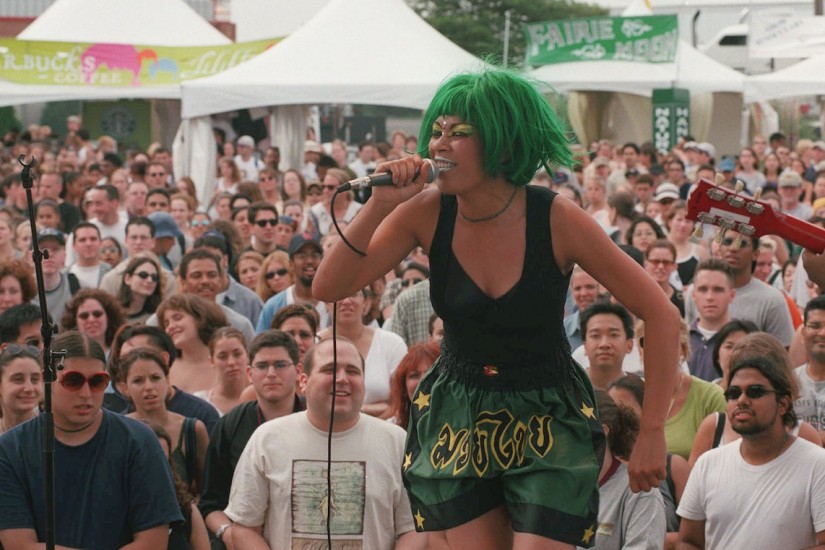Sheryl Crow, performer (Crow released her new album, Threads, August 30):
I remember talking to my agent about touring with another female, and the response was, “You don’t want to do that because it won’t sell tickets.”
Amy Ray, Indigo Girls, performer:
There were only so many gay women they were going to play, which was usually going to be Melissa Etheridge.
Mann: When I signed a deal with Modern Records in 1992, the other label I had been talking to was A&M. They really liked the record, but then they kind of hemmed and hawed, and finally said, “Well, we can’t sign you because we already have a female artist.” That was Sheryl Crow. That was it. One slot.
Phair: Male artists, male producers, male roadies. Everything was male. Everything, everything, everything.
Sarah McLachlan, Lilith Fair cofounder and headliner:
I’d hear all these radio stations playing Pearl Jam and Soundgarden. Anybody talking about how that can’t happen? It just seems a bit ridiculous to me.
Loeb: Your fists were up all the time.
Andrea Warner, author, We Oughta Know: How Four Women Ruled the ’90s and Changed Canadian Music, attendee:
The irony was that the mid-’90s were the first time that women out-bought men in terms of music consumption. This idea that men didn’t listen to these artists was bullshit.
Chris Molanphy, critic/host, Hit Parade podcast, attendee:
Sheryl Crow, Melissa Etheridge, the Pretenders, Tracy Chapman, Sarah McLachlan—they all went Top 40. Jewel goes 10-times platinum. The Dixie Chicks explode. Shania Twain is basically the biggest star in America.
Jewel: I went from selling 2,000 records in a year to selling a million every month. It was just crazy how it took off.
Molanphy: But by the time Lilith shows up, the bro-ification of alternative rock had begun in earnest. The money gets too big, and Pearl Jam and Green Day are selling 10 million records. Women artists are the most visible casualties.
Fraser: It got even harder for the girls to get fair market ticket price, to get to the level the boys were playing at.
McLachlan: I thought, What can we do that’s a little different? Let’s get some other women to come and do it with me. We did four shows in 1996. It was like a test run.
Terry McBride, Nettwerk Music Group, Lilith Fair cofounder:
It was almost like a challenge, right? Next, we did a show in Detroit, where it was Sarah and four other female artists.
Paula Cole, performer:
It was me, Sarah, Tracy Chapman, and Suzanne Vega.
McBride: The energy from that show, the reaction to it, the community that started to show up…? 15,000 people. Sold out. Its potential all came together.
